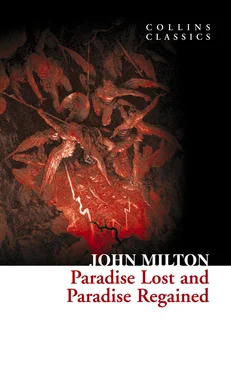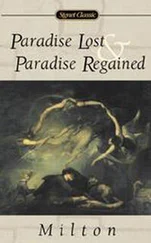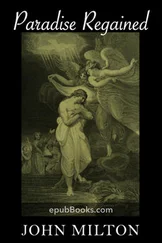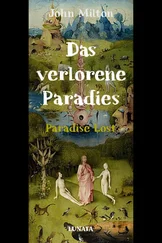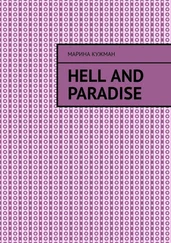Invincible, and vigour soon returns,
Though all our glory extinct, and happy state
Here swallowed up in endless misery.
But what if he our Conqueror (whom I now
Of force believe almighty, since no less
Than such could have o’erpowered such force as ours)
Have left us this our spirit and strength entire,
Strongly to suffer and support our pains,
That we may so suffice his vengeful ire,
Or do him mightier service as his thralls
By right of war, whate’er his business be,
Here in the heart of Hell to work in fire,
Or do his errands in the gloomy Deep?
What can it the avail though yet we feel
Strength undiminished, or eternal being
To undergo eternal punishment?”
Whereto with speedy words th’ Arch-Fiend replied:—
“Fallen Cherub, to be weak is miserable,
Doing or suffering: but of this be sure—
To do aught good never will be our task,
But ever to do ill our sole delight,
As being the contrary to his high will
Whom we resist. If then his providence
Out of our evil seek to bring forth good,
Our labour must be to pervert that end,
And out of good still to find means of evil;
Which ofttimes may succeed so as perhaps
Shall grieve him, if I fail not, and disturb
His inmost counsels from their destined aim.
But see! the angry Victor hath recalled
His ministers of vengeance and pursuit
Back to the gates of Heaven: the sulphurous hail,
Shot after us in storm, o’erblown hath laid
The fiery surge that from the precipice
Of Heaven received us falling; and the thunder,
Winged with red lightning and impetuous rage,
Perhaps hath spent his shafts, and ceases now
To bellow through the vast and boundless Deep.
Let us not slip th’ occasion, whether scorn
Or satiate fury yield it from our Foe.
Seest thou yon dreary plain, forlorn and wild,
The seat of desolation, void of light,
Save what the glimmering of these livid flames
Casts pale and dreadful? Thither let us tend
From off the tossing of these fiery waves;
There rest, if any rest can harbour there;
And, re-assembling our afflicted powers,
Consult how we may henceforth most offend
Our enemy, our own loss how repair,
How overcome this dire calamity,
What reinforcement we may gain from hope,
If not, what resolution from despair.”
Thus Satan, talking to his nearest mate,
With head uplift above the wave, and eyes
That sparkling blazed; his other parts besides
Prone on the flood, extended long and large,
Lay floating many a rood, in bulk as huge
As whom the fables name of monstrous size,
Titanian or Earth-born, that warred on Jove,
Briareos or Typhon, whom the den
By ancient Tarsus held, or that sea-beast
Leviathan, which God of all his works
Created hugest that swim th’ ocean-stream.
Him, haply slumbering on the Norway foam,
The pilot of some small night-foundered skiff,
Deeming some island, oft, as seamen tell,
With fixed anchor in his scaly rind,
Moors by his side under the lee, while night
Invests the sea, and wished morn delays.
So stretched out huge in length the Arch-fiend lay,
Chained on the burning lake; nor ever thence
Had risen, or heaved his head, but that the will
And high permission of all-ruling Heaven
Left him at large to his own dark designs,
That with reiterated crimes he might
Heap on himself damnation, while he sought
Evil to others, and enraged might see
How all his malice served but to bring forth
Infinite goodness, grace, and mercy, shewn
On Man by him seduced, but on himself
Treble confusion, wrath, and vengeance poured.
Forthwith upright he rears from off the pool
His mighty stature; on each hand the flames
Driven backward slope their pointing spires, and rolled
In billows, leave i’ th’ midst a horrid vale.
Then with expanded wings he steers his flight
Aloft, incumbent on the dusky air,
That felt unusual weight; till on dry land
He lights—if it were land that ever burned
With solid, as the lake with liquid fire,
And such appeared in hue as when the force
Of subterranean wind transports a hill
Torn from Pelorus, or the shattered side
Of thundering Etna, whose combustible
And fuelled entrails, thence conceiving fire,
Sublimed with mineral fury, aid the winds,
And leave a singed bottom all involved
With stench and smoke. Such resting found the sole
Of unblest feet. Him followed his next mate;
Both glorying to have scaped the Stygian flood
As gods, and by their own recovered strength,
Not by the sufferance of supernal Power.
“Is this the region, this the soil, the clime,”
Said then the lost Archangel, “this the seat
That we must change for Heaven?—this mournful gloom
For that celestial light? Be it so, since he
Who now is sovereign can dispose and bid
What shall be right: farthest from him is best
Whom reason hath equalled, force hath made supreme
Above his equals. Farewell, happy fields,
Where joy for ever dwells! Hail, horrors! hail,
Infernal world! and thou, profoundest Hell,
Receive thy new possessor—one who brings
A mind not to be changed by place or time.
The mind is its own place, and in itself
Can make a Heaven of Hell, a Hell of Heaven.
What matter where, if I be still the same,
And what I should be, all but less than he
Whom thunder hath made greater? Here at least
We shall be free; th’ Almighty hath not built
Here for his envy, will not drive us hence:
Here we may reign secure; and, in my choice,
To reign is worth ambition, though in Hell:
Better to reign in Hell than serve in Heaven.
But wherefore let we then our faithful friends,
Th’ associates and co-partners of our loss,
Lie thus astonished on th’ oblivious pool,
And call them not to share with us their part
In this unhappy mansion, or once more
With rallied arms to try what may be yet
Regained in Heaven, or what more lost in Hell?”
So Satan spake; and him Beelzebub
Thus answered:—“Leader of those armies bright
Which, but th’ Omnipotent, none could have foiled!
If once they hear that voice, their liveliest pledge
Of hope in fears and dangers—heard so oft
In worst extremes, and on the perilous edge
Of battle, when it raged, in all assaults
Their surest signal—they will soon resume
New courage and revive, though now they lie
Grovelling and prostrate on yon lake of fire,
As we erewhile, astounded and amazed;
No wonder, fallen such a pernicious height!”
He scare had ceased when the superior Fiend
Was moving toward the shore; his ponderous shield,
Ethereal temper, massy, large, and round,
Behind him cast. The broad circumference
Hung on his shoulders like the moon, whose orb
Through optic glass the Tuscan artist views
At evening, from the top of Fesole,
Or in Valdarno, to descry new lands,
Rivers, or mountains, in her spotty globe.
His spear—to equal which the tallest pine
Hewn on Norwegian hills, to be the mast
Of some great ammiral, were but a wand—
He walked with, to support uneasy steps
Over the burning marl, not like those steps
On Heaven’s azure; and the torrid clime
Smote on him sore besides, vaulted with fire.
Nathless he so endured, till on the beach
Of that inflamed sea he stood, and called
His legions—Angel Forms, who lay entranced
Читать дальше
